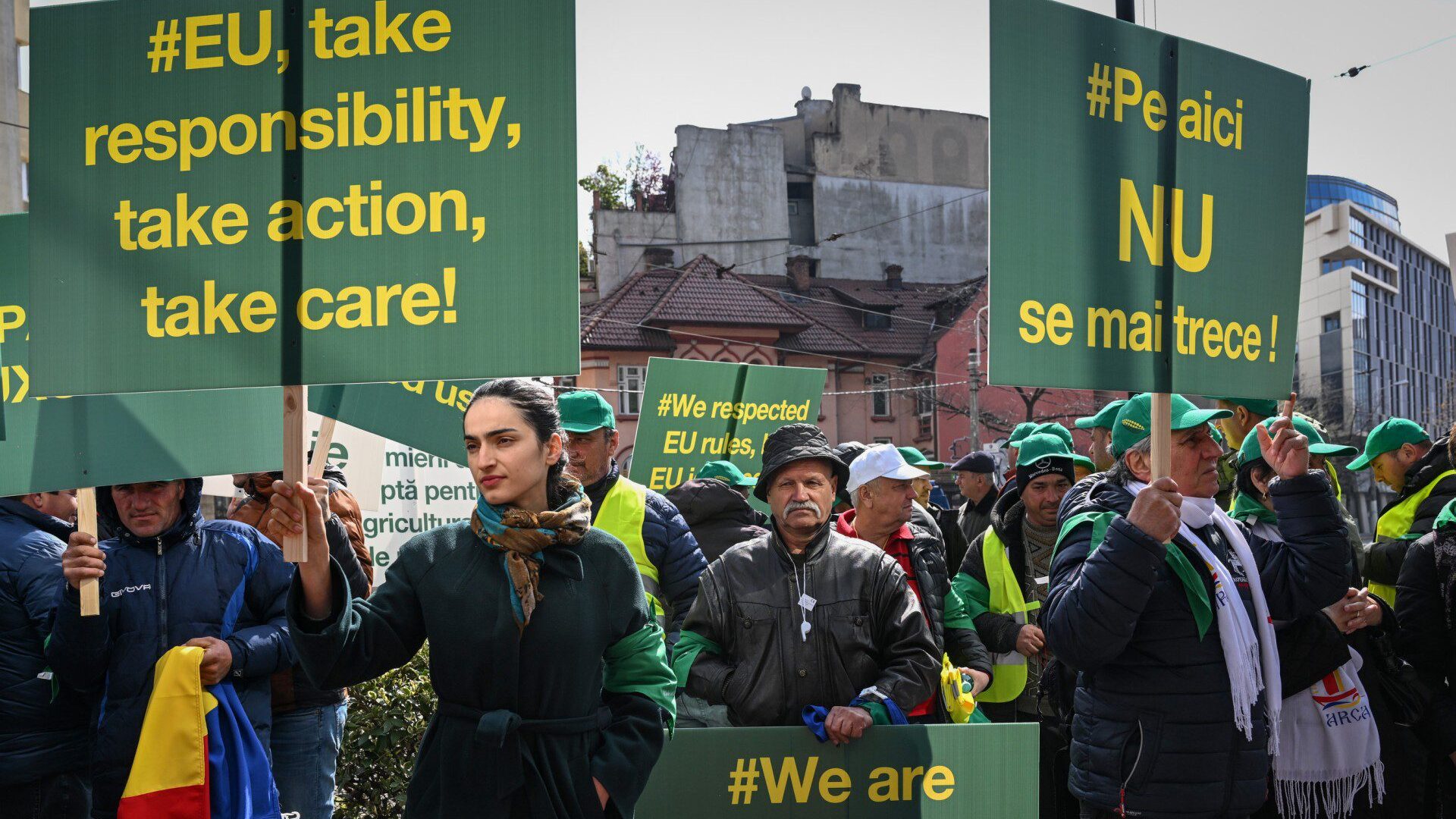
Romanian farmers protest in front of the European Commission headquarters in Bucharest on April 7, 2023.
Photo: DANIEL MIHAILESCU / AFP
Poland and Hungary have decided to, at least temporarily, ban imports of cheap grain and other food from Ukraine.
Because of the war, grain exports from Ukraine’s Black Sea ports have been severely curtailed, forcing the transport of Ukrainian grain to pass through the European Union in order to reach other markets. Due to logistical problems, however, grain quickly piled up in Poland, driving down local prices.
The glut of produce from Europe’s granary therefore presented a serious problem to Polish farmers, who saw their income dwindle precipitously.
Earlier this month, the state of affairs triggered mass protests by farmers, forcing the Polish government to come up with a solution. Not much later, Henryk Kowalczyk, Poland’s agriculture minister, resigned over the matter and was subsequently replaced by Robert Telus.
After a few days in office, Telus announced he had come to an agreement with Kyiv to “severely restrict, and for the moment even stop completely, grain arrivals to Poland.”
According to Poland’s ruling Law and Justice (PiS) party, which made the announcement on Saturday, April 15th during a party congress, this latest decision was necessary.
Jaroslaw Kaczynski, its party leader, said the Polish countryside is “experiencing a crisis” and that while Poland remains, “without even the slightest change, friends and allies of Ukraine,” it is however forced to protect its own farmers.
“Today, the government has decided on a regulation that prohibits the entry, importation of grain into Poland, but also dozens of other types of food (from Ukraine),” Kaczynski said. The ban would last until June 30th and also applies to imports of sugar, eggs, meat, milk, vegetables, and fruit, among other products.
Kaczynski added that Poland was ready to start talks with Kyiv on the issue.
Ukraine’s Ministry of Agrarian Policy and Food, however, regretted Poland’s unilateral intervention, which contradicted existing bilateral agreements. “We understand that Polish farmers are in a difficult situation, but we emphasize that Ukrainian farmers are in the most difficult situation right now,” the ministry said, suggesting that a new agreement should be reached that would satisfy both sides.
Later the same day, the Hungarian government also announced a ban of its own, citing severe damage already done to its local farmers. While Budapest did not provide details on when this ban on grain and other food products would go into effect, it said the measure would expire at the end of June. Hungary added that it hoped for regulatory changes at the EU level, including reconsidering a waiver of import duties on Ukrainian produce.
Poland and Hungary are not alone in their complaints of Ukrainian grain flooding their countries.
On March 31st, the PMs of Poland, Hungary, Romania, Bulgaria, and Slovakia—which also saw farmers’ protests over the issue—jointly urged the European Commission to provide aid to farmers in these countries to offset the financial damage done by Ukrainian imports.
